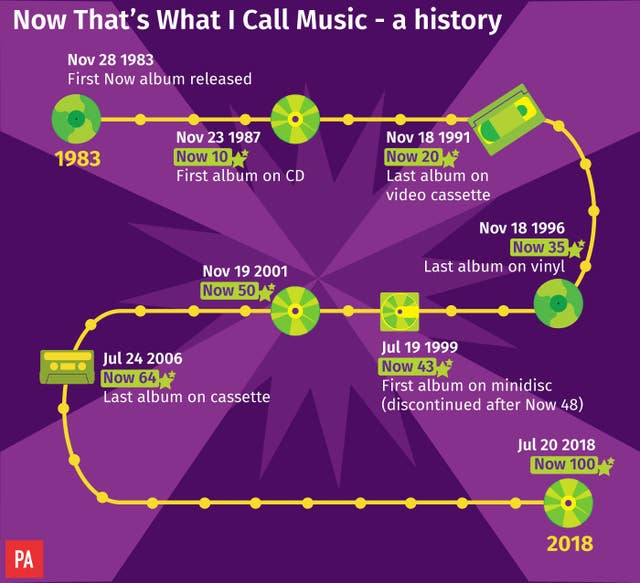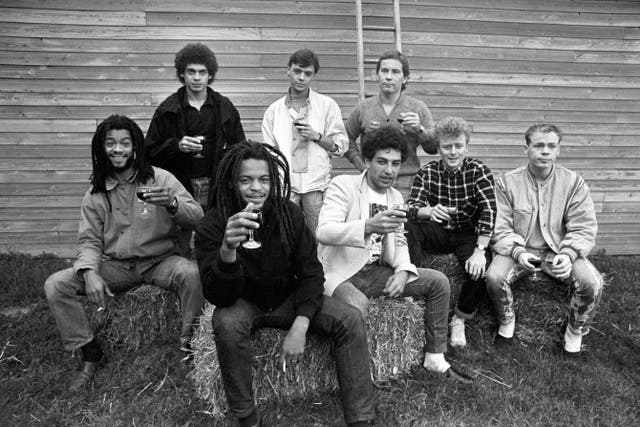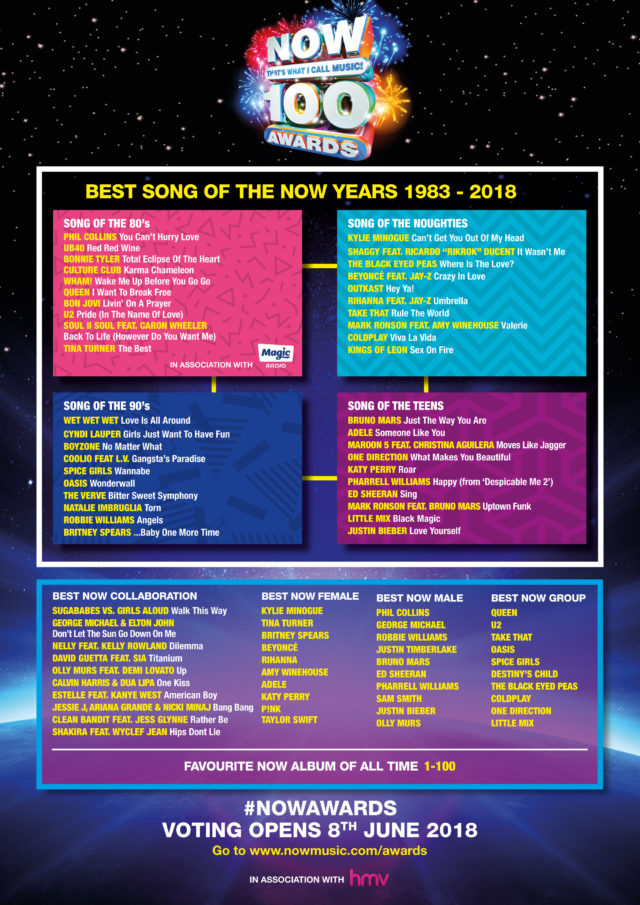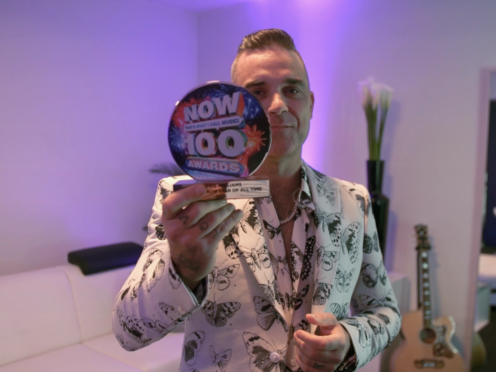One of the bosses behind the Now That’s What I Call Music! compilations has said their enduring popularity is down to their “unique combination of currency and nostalgia”.
Peter Duckworth, a co-managing director of Now music, started working with the brand in 1991 and has been compiling the double albums since 2012.
HAPPY NOW 100 DAY! 🍾
Thank you to everyone who has supported us over the last 35 years, without you we wouldn't exist 💕
We hope you enjoy the 100th NOW edition 😁https://t.co/Udc88NCqRO pic.twitter.com/U2pWEa0P4I
— NOW That's What I Call Music (@NOWMusic) July 20, 2018
The 100th edition was released on July 20 and includes tracks from newer artists such as Years & Years and Ariana Grande, as well as more established acts such as UB40, who featured on the very first Now release in 1983.
Duckworth told the Press Association: “The original concept, which was this idea of great value – for the price of five or six singles you could have 30 singles on a double vinyl or double cassette – that was such a successful formula.
“Although it wasn’t new at the time in the sense that other people had done it, others hadn’t done it with any degree of quality.
“There were these rather sort of dodgy, for want of a better word, record labels that would do these compilations but they would either be cover versions or the tracks would be edited, there would be compromises along the way.

“Now was the very first one that was full quality and still great value.”
He continued: “No-one thought this was going to be a long-term series at the time. I think they wouldn’t have even thought about getting to 10 volumes let alone 100.
“People had a fondness for their first Now and so then they became almost this brand name that became synonymous with hits and nostalgia, but at the same time being current.”
The “shareability” of the compilations across generations is comparable to something like Star Wars, he said.
“Eventually, parents who’d been given it as a kid were having kids of their own so they started giving it to their kids, so it crossed the generational divide.
“It became a family thing and it just sort of became self-fulfilling, really.
“A bit like Star Wars, which, when it came out with the prequel trilogy in the late ’90s, it was appealing to all the mums and dads who’d seen the original trilogy in the late ’70s, so it’s this cross-generational thing, so it’s almost sustained itself then by being popular for all age groups.”

The albums are compiled using data from across various sources.
Duckworth explained: “In the old days it was fairly straightforward because there was a singles chart and there was sales data and they were the two things you could look at really.
“These days there are so many data sources – streams, YouTube views, Shazam, air play data from radio stations, which is masses of stats, so we try and put all of this into a pot and work out what is genuinely the most popular song at that moment and choose the most popular.
Congrats to the iconic @britneyspears who has won a whopping 3 NOW Awards!
⭐️ Best Song of the NOW Years (1983 – 2018) ⭐️ Best Song of the 90's⭐️ Best NOW Female
NOW That's What I Call Britney! 😆 pic.twitter.com/EgrnYZifND
— NOW That's What I Call Music (@NOWMusic) July 19, 2018
“We leave our tastes at the door, we can’t bring our own musical tastes into it, you have to just go on what the data tells you is the most popular, or what’s in the zeitgeist in music at that moment.
“Sometimes we have to try and forecast what’s coming, because we have to make the album three weeks before it’s released, so sometimes we’re trying to predict what might be a hit in three weeks’ time”.

Britney Spears’ hit single Baby One More Time was named the best song of the last 35 years after winning the vote for that category across the Now albums in the Now Awards.
Newly-announced X Factor judge Robbie Williams features on the 100th album and was named the greatest Now star of all time.
Asked how Now has thrived in a rapidly changing music industry, Duckworth said: “To some extent you can almost say that Now was the original playlist curator because, in the days before playlists, Now was there choosing the best tracks.
“At the time you had artist albums that might have had one, two or three hit singles on them and the rest was stuff that people didn’t really necessarily know.
“Now was sitting there as this playlist of hits and then 35 years later we got Spotify and Apple Music and that’s all about playlists. It’s almost come round to everything being like Now, rather than Now being unlike anything”.
